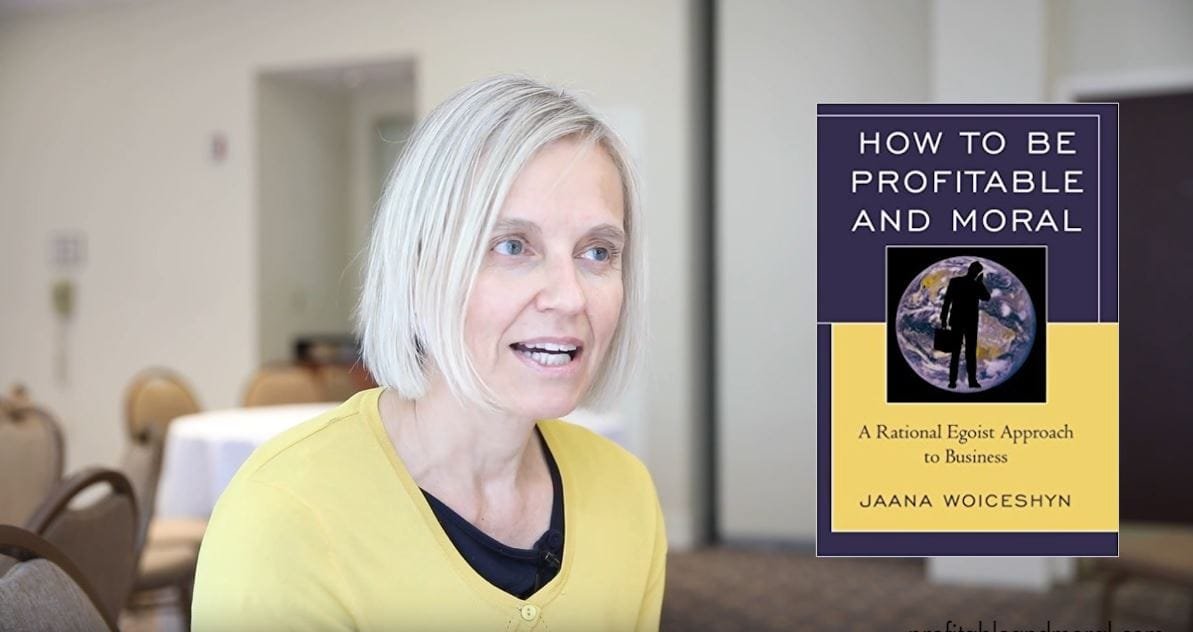An MBA student and business professional who had read my book, How to Be Profitable and Moral, commented:
“Those principles you write about make a lot of sense, but at the same time, business is ruthless, and most people do not follow such moral principles. How can you act on principle when others don’t?”
In his view, acting on moral principles, even the rational ones in my book, would be too costly for business: doing so would undermine profits.
I was reminded of that student’s skepticism about moral principles when a mid-career engineer was telling me about his experience at a consulting firm he had recently joined. He had been assigned to a client whose problem he was able to solve cost-effectively to the client’s satisfaction. Yet, he received no recognition for this from senior colleagues who wanted to sell additional services to the client (whose technical problem they were not familiar with). They wanted more billable hours, seemingly with the (invalid) principle: “Squeeze the client to maximize profits while you can.”
But are principles and profits really in conflict?
Acting on principle means consistently applying principles we know to be valid from research and experience, to achieve goals. Engineers solve technical problems, such as designing a structure (such as a bridge) or cleaning up industrial waste, based on engineering principles. Farmers grow crops for food, based on principles of agriculture. To sell products and services, businesses advertise, based on advertising principles. Principles in every field are general truths that serve as guidelines for achieving values: a sound structure or a clean environment, a good crop, increased sales. All these values (as opposed to a collapsed structure, a polluted environment, a failed crop, decreased sales) when achieved by acting on valid principles, enhance profits.
The same is true of moral principles – fundamental principles that shape people’s character and life course as well as long-term success in business – such as rationality, honesty, justice, and integrity.
The engineer’s senior colleagues didn’t recognize these principles. They abandoned rationality by ignoring the relevant facts: the client was satisfied with the engineer’s solution and didn’t want further services at the time. Trying to sell unnecessary and unwanted services in pursuit of short-term profits would jeopardize repeat business and the consultancy’s reputation – on which future business depends. Such conduct is also dishonest because the senior colleagues were evading the client’s present needs and the loss of potential long-term profits. An attempt to push unnecessary services to the client is also unjust because the client deserves honest assessment of their problem and solution that fits their needs and budget. Not giving credit to the engineer for finding a solution for the client was also unjust and lowered his morale and productivity or could make him quit if it’s part of a pattern.
Ignoring the principles of rationality, honesty, and justice amounts to lacking integrity: in other words, not having a code of moral principles to guide one’s actions towards the achievement of the ultimate value in business, long-term profitability. Not having integrity means wholesale abandonment of moral principles for short-sighted expediency. I don’t know the consulting firm’s financial situation, but if the engineer’s experience is typical, it does not bode well for retaining clients or productive employees on which long-term profits depend.
Abandoning moral principles is a bad idea because identifying and applying them is the only means of achieving and keeping values. We don’t automatically know what values to pursue and how to achieve them; yet we cannot safely act on impulse and hope to survive and thrive. Instead, we need to think to identify values we need to live: knowledge, production, trade, wealth, and others. We also need to think to identify and apply the moral principles (including rationality, honesty, justice, and integrity) that help us achieve such values.
The fact that there are others who don’t follow moral principles in business (or in other fields) does not make a good case for doing the same. It is possible for such companies to make short-term gains by ignoring principles, such as honesty and justice. But clients and employees who are worth keeping will abandon companies that mislead, don’t trade value for value, and ignore other moral principles. These clients and employees will seek out companies that strive to act on principle. Fortunately, they are the majority, as the long record of profitable production and trade of goods and services of many such companies attests. (See the Acquired podcast for some inspiring examples).
Absent government cronyism, competition by such companies drives out bad actors. If long-term profit maximization is the goal, applying principles pays, abandoning them does not.




